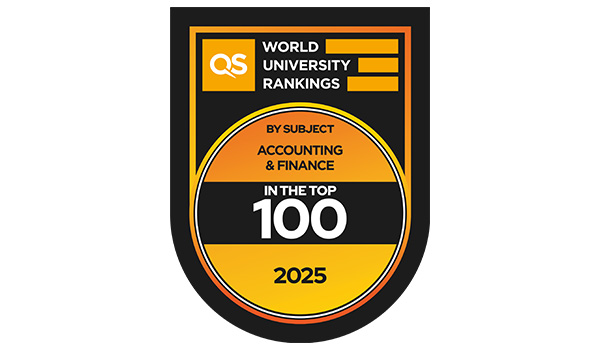If you aspire to lead the future of finance, our MSc Financial Technologies and Artificial Intelligence (AI) is designed for you. The programme’s versatile curriculum will open doors to many high-value professions at the intersection of finance and technology, where expertise in AI and financial innovation is increasingly rewarded.
MSc Financial Technologies and AI is a unique programme that combines classical quantitative finance techniques with cutting-edge developments in financial technology and big data analysis, including machine learning and AI. The curriculum bridges financial theory with practical applications in quantitative trading, risk management, and forecasting. Graduates can pursue prestigious roles such as quantitative traders, risk managers, data scientists, and financial researchers at leading investment banks, hedge funds, and FinTech firms.
Master quantitative skills and AI applications
You will develop quantitative trading skills, employing sophisticated strategies that leverage the power of data and technology. You will master financial and quantitative risk management tools, learning to identify, analyse and manage risks. You will learn to conduct rigorous simulation analyses and stress tests, ensuring resilience and strategic foresight in decision-making. You will also discover pioneering methods to predict financial and economic trends using AI-driven tools and techniques, all tailored to the world of big data.
Deep dive into financial markets
This programme will help you build a deep understanding of financial markets and key financial instruments and their pricing techniques. You will learn how to develop and price new financial instruments and quantitatively assess their risks. You will gain expertise in modelling financial processes and will be able to apply this knowledge to empirical asset pricing and risk management.
Hands-on with data analytics and programming
You will get comprehensive training in data analytics tools, machine learning techniques, and AI applications for financial data analysis, including big and high-frequency data. You will also become familiar with alternative asset classes such as hedge cryptocurrencies and their associated risks. You will gain practical experience in programming languages (eg, Python and R) and you will work with key financial databases such as DataStream and Bloomberg.
These combined skills will enable you to perform comprehensive financial and quantitative analysis from model development through testing and implementation using real data.
Core modules and customisation
During the taught part of your master’s programme, you will take six core modules, developing your skills and knowledge in financial technologies and data analysis. One core module is a transferrable skills module, which develops your soft skills, database management skills, and coding skills. You will also take one optional module, which allows you to tailor your degree to your personal interests.
In the summer, you will integrate all your acquired knowledge in an individual research-driven dissertation project. This project provides hands-on experience with real-world quantitative research while developing your research planning, time-management and written communication skills.



.jpg)







